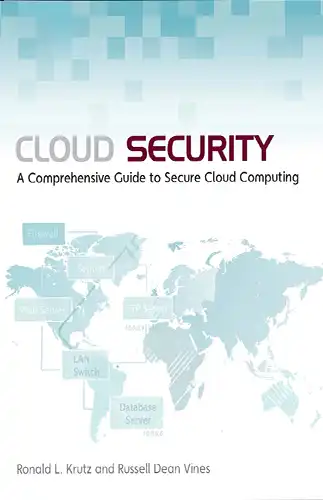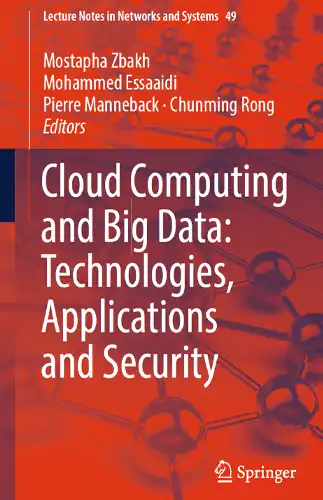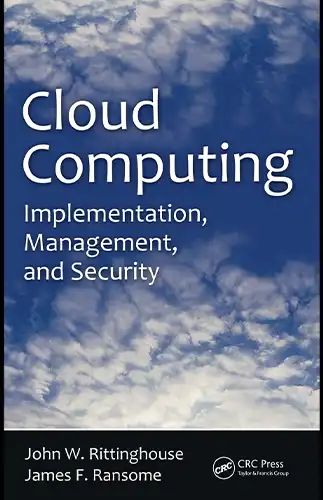01:09 Innovations in Cloud Computing: A Comprehensive Overview
- Steve Chau

- Jul 1, 2024
- 9 min read
Updated: Mar 22, 2025
Emerging Cloud Computing Technologies and Their Impact on Industry Practices
Cloud computing has become the foundation of modern IT infrastructure, revolutionizing how data is stored, processed, and accessed. This evolution is marked by the continual emergence of groundbreaking technologies that promise to enhance operational efficiency, reduce costs, and create new opportunities for innovation across various sectors. As these technologies evolve, they are set to fundamentally alter the digital landscape, necessitating a deep understanding and adaptation of new skills for businesses to remain competitive.
One of the most significant impacts of cloud computing innovations is how organizations manage and deploy their IT resources. For example, serverless computing, a key emerging technology, allows businesses to run applications without managing physical servers, reducing IT overhead and enhancing scalability. This model mainly benefits startups and smaller companies, enabling them to launch and scale applications with minimal upfront investment. Similarly, integrating AI into cloud services transforms how companies handle and analyze vast data. Businesses can now leverage AI-powered analytics to gain real-time insights into customer behavior, operational inefficiencies, and market trends, significantly enhancing decision-making and strategic planning.
Skip To:
These cloud computing advancements in everyday life translate into more seamless, personalized, and efficient consumer experiences. For instance, edge computing, another disruptive technology, processes data closer to where it is generated, dramatically reducing latency and improving the performance of real-time applications such as smart homes, wearables, and autonomous vehicles. Consumers benefit from faster, more reliable services that enhance everything from home security systems that react instantaneously to environmental changes to real-time navigation and traffic management in smart cities. These examples illustrate how Cloud computing innovations reshape the business landscape and profoundly influence daily life, making it more connected, efficient, and responsive.
Top Emerging Technologies in Cloud Computing
Several emerging technologies are transforming the landscape of cloud computing, each bringing specific benefits that enhance daily lives and streamline business operations.
Quantum Cloud Computing

Quantum Cloud Computing is a game-changer, leveraging the immense processing power of quantum mechanics integrated with cloud technology. This potent combination facilitates the rapid solving of complex problems far beyond the capacity of traditional computers. For example, in cryptography, quantum cloud computing can secure data with unprecedented robustness, while in optimization and artificial intelligence, it enables faster and more accurate predictions and solutions. Companies like IBM and Google are leading this frontier, offering cloud-based quantum computing services that are beginning to influence sectors ranging from pharmaceuticals to finance, where such computational power can lead to breakthroughs in drug discovery and financial modeling.
Serverless Computing

Serverless Computing marks a significant shift in how applications are developed and deployed. By abstracting server management, this technology allows developers to focus solely on coding. Platforms like AWS Lambda and Azure Functions handle the scaling and operation of the server infrastructure, charging only for the computation time used, not idle server space. This not only cuts costs but also speeds up the development process. In practical terms, businesses can develop and deploy applications faster and more efficiently, from e-commerce platforms that adjust to traffic dynamically to social media apps that can scale during viral events without manual intervention.
Edge Computing

Edge Computing brings computation and data storage closer to where they're needed, drastically reducing latency and enhancing the performance of real-time applications. This is particularly transformative in the Internet of Things (IoT), autonomous vehicles, and smart city technologies. For instance, in smart homes, edge computing enables real-time processing and responsiveness in security systems and appliances. Autonomous cars support split-second decision-making critical to safety and navigation.
AI-Enhanced Cloud

AI-enhanced cloud integrates artificial intelligence with cloud platforms, making these systems more intelligent and adaptive. This fusion is crucial for enhancing data analytics capabilities and managing complex machine learning models. For example, cloud AI services like Google Cloud AI and Microsoft Azure AI offer tools that significantly simplify the development and deployment of AI models, enabling businesses to provide personalized shopping experiences, predictive maintenance, and better customer service through chatbots and recommendation systems.
Hybrid Multi-Cloud Strategies

Hybrid Multi-Cloud Strategies provide flexibility and optimization in IT deployments by utilizing multiple cloud services from different providers. This approach helps businesses avoid vendor lock-in, optimize costs, and meet specific compliance and performance criteria. For example, a company might use AWS for its machine learning capabilities while relying on Microsoft Azure for business analytics and compliance with specific geographic regulatory requirements. This strategy ensures that businesses can always use the best tool for the job without being constrained by a single provider's offerings.
These technologies are reshaping the cloud computing and profoundly impacting our lives and work. They are making technology more adaptive, efficient, and closely integrated with our daily needs.
Skills Required to Harness Cloud Innovations
To fully utilize the potential of these emerging cloud technologies, professionals need to develop a blend of technical and soft skills:
Technical Expertise in Cloud Platforms

Technical expertise in cloud platforms is a cornerstone of modern IT careers, focusing on proficiency with leading services such as AWS, Azure, and Google Cloud Platform. Mastery of these platforms is crucial because it enables professionals to understand and utilize their full range of services and tools. From architecting robust cloud solutions to managing intricate deployments, knowledge of cloud infrastructure is indispensable. This expertise involves understanding the basic functionalities and includes advanced features like auto-scaling, load balancing, and serverless technologies. Professionals who excel in these areas are well-prepared to design and maintain scalable and resilient systems, meeting the dynamic needs of modern businesses.
This technical foundation opens up various career paths and job titles within the cloud computing industry. For instance, individuals can pursue roles such as Cloud Architect, who designs comprehensive cloud solutions; Cloud Software Engineer, who develops applications intended to run in cloud environments; or Cloud Systems Administrator, who oversees and maintains cloud infrastructure. Each role requires a deep understanding of cloud architecture and the ability to work with specific cloud services. Additionally, the demand for professionals skilled in multiple cloud platforms is growing as businesses seek to leverage the strengths of different clouds for enhanced performance and redundancy. Success in these careers requires technical skills and a continuous commitment to learning about the latest cloud technologies and innovations.
Data Science and Analytics

Data Science and Analytics are rapidly becoming indispensable in cloud computing, especially with the increasing integration of AI technologies. These skills are pivotal for professionals aiming to leverage the massive volumes of data generated daily, enabling them to derive actionable insights and drive business strategies. Mastery in data analysis, machine learning, and statistics allows for sophisticated modeling and prediction capabilities, crucial for industries ranging from healthcare to finance, where such analytical prowess can lead to significant advancements in efficiency and innovation. For instance, in retail, data science can optimize inventory management and customer experience by accurately predicting trends and consumer behavior.
As businesses continue to embrace data-driven decision-making, the demand for skilled data science and analytics professionals has soared, creating various career opportunities. Job titles such as Data Scientist, Machine Learning Engineer, and Data Analyst are becoming increasingly common in organizations prioritizing data as a core element of their operational strategy. These roles typically require a deep understanding of statistical methods, proficiency in programming languages like Python or R, and the ability to work effectively with various data processing platforms in the Cloud. Moreover, these professionals must possess strong problem-solving skills and the creativity to apply quantitative techniques innovatively across different business challenges.
Programming Languages

Proficiency in programming languages such as Python, Java, and JavaScript is crucial for software developers working in cloud computing. These languages form the backbone of application development, offering the tools necessary to build scalable, flexible, and efficient applications across various cloud platforms. Python, known for its simplicity and readability, is favored in data-intensive environments due to its robust libraries and frameworks for data analysis and machine learning. With its platform-independent Java Virtual Machine (JVM), Java is prized for its ability to create highly portable code that can run across multiple cloud environments without modification. However, JavaScript is essential for developing interactive front-end applications and has extended its reach to server-side programming through environments like Node.js.
The demand for these programming skills has led to diverse career opportunities in the tech industry. Job titles such as Software Developer, Full Stack Developer, and Cloud Application Developer are standard and often require deep knowledge of one or more of these critical programming languages. Moreover, roles like DevOps Engineer and System Architect also demand a good grasp of programming fundamentals to automate cloud operations and design system architectures that support scalable applications. Beyond just knowing the languages, successful professionals in these fields must continually update their skills with the latest frameworks and cloud services to stay relevant and effective in their roles. This ongoing learning is crucial as the tools and technologies in cloud computing evolve rapidly, requiring a proactive approach to professional development and skills enhancement.
Cybersecurity and Compliance

Cybersecurity and compliance are paramount, especially as organizations increasingly shift their operations to cloud environments. With a vast amount of data handled online, robust cybersecurity skills are essential to safeguard sensitive information from threats and breaches. Professionals in this field must be well-versed in the latest security protocols, encryption methods, and threat mitigation techniques to protect data effectively. Additionally, understanding and adhering to regulatory requirements is crucial, as non-compliance can lead to significant fines and damage to an organization's reputation. This includes familiarity with GDPR, HIPAA, and SOC 2 standards, which govern data privacy and security across different regions and industries.
The demand for skilled cybersecurity professionals has led to the emergence of specialized career paths within IT and cloud computing. Job titles such as Cybersecurity Analyst, Cloud Security Architect, and Compliance Officer are increasingly common and critical for organizations looking to strengthen their security posture. These roles typically require a deep understanding of cloud infrastructure, proficiency in security tools and practices, and the ability to work under the pressures of continually evolving cyber threats. Additionally, professionals must possess strong analytical skills and a proactive mindset to anticipate security vulnerabilities and implement timely solutions. Certifications such as Certified Information Systems Security Professional (CISSP) or Certified Information Security Manager (CISM) can also provide a significant edge in the field, demonstrating a validated level of expertise and commitment to best practices in cybersecurity and compliance.
DevOps and Automation

DevOps and automation are critical components in the modern software development lifecycle, especially as organizations increasingly move towards cloud-based architectures. Skills in DevOps practices enable teams to integrate and automate the processes between software development and IT operations, which helps in delivering applications and services at high velocity. Mastery of automation tools and continuous integration/continuous deployment (CI/CD) pipelines reduces the overall complexity of deployments and enhances reliability and efficiency. This approach allows for frequent, incremental updates to applications in a controlled and systematic manner, ensuring that software remains in a deployable state throughout its lifecycle. As cloud platforms evolve, the ability to rapidly deploy and manage applications with minimal manual intervention becomes essential.
The burgeoning field of DevOps offers various career paths for individuals with a knack for both development and operations. Key roles include DevOps Engineer, Automation Specialist, and Site Reliability Engineer (SRE), each focusing on optimizing project lifecycles through automation and improved workflows. These positions demand a solid understanding of coding and scripting languages, profound knowledge of CI/CD methodologies, and proficiency using tools like Jenkins, GitLab, and Kubernetes. Additionally, professionals in this field must possess strong problem-solving abilities and excellent communication skills to collaborate across teams effectively. As DevOps is about cultural change, adaptability, and a continuous learning mindset are crucial qualities contributing to success and innovation in this dynamic discipline.
Harnessing Innovation in Cloud Computing for Future Success

The landscape of cloud computing is undergoing significant transformation, driven by innovative technologies that enhance capabilities and operational efficiencies. These advancements are not just theoretical; they have tangible impacts on how organizations operate and compete in the modern marketplace. As companies prepare to integrate these new technologies, the role of skilled professionals becomes crucial. These individuals are the catalysts who can harness the potential of these technologies and translate them into real-world benefits, optimizing processes and boosting productivity across various sectors.
For professionals in the field, staying abreast of these developments is essential. The rapid pace of innovation in cloud computing demands continuous learning and adaptation. Engaging with ongoing education and staying informed about industry trends are critical practices for those who wish to leverage the opportunities provided by these technological advancements. By doing so, they not only enhance their career prospects but also contribute significantly to the strategic goals of their organizations, ensuring they remain competitive in an ever-evolving digital landscape.
Chauster UpSkilling Solutions is strategically positioned to address the growing demand for advanced cloud computing skills, as this article emphasizes. Through specialized training programs and certifications, Chauster equips professionals to adeptly navigate the complexities of cutting-edge technologies such as quantum computing, serverless architectures, and AI integration. These programs are crafted by blending theoretical knowledge with practical application to ensure learners understand modern cloud technologies' foundational elements and intricate details. The focus on emerging areas like data security, compliance, and innovative DevOps practices enables participants to acquire hands-on experience directly applicable to real-world challenges.
Furthermore, Chauster UpSkilling Solutions adopts a holistic educational approach that is designed not just to educate but also to empower professionals to become pioneers in their fields. This comprehensive strategy helps learners stay at the forefront of technological advancements, ensuring they are well-prepared to leverage new tools and methodologies effectively. As a result, those who complete Chauster's programs are proficient in the latest technologies and are primed to drive significant improvements in operational efficiency and innovation within their organizations. Focusing on continuous learning and skill development fosters an environment where professionals are encouraged to explore new solutions and apply their knowledge to foster transformative changes in the cloud computing landscape.










Comments